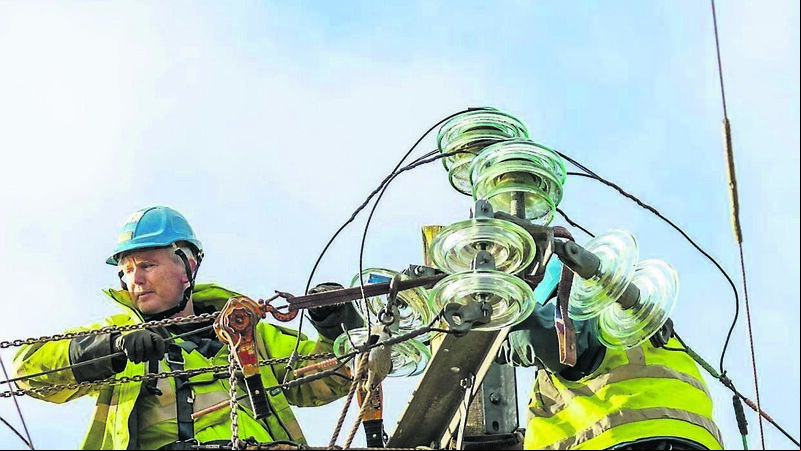In a climate-changing world, we all need to be ‘preppers’

To me, ‘preppers’ were doomsday-loving conspiracy theorists spending their one short life in anticipation of a catastrophe that may never come. Now, I want to be one.
Listening to tales of people living without power, heat, and water for more than a week in the aftermath of Storm Éowyn makes me think we all need to become part-time preppers to improve our resilience in the face of more frequent extreme weather events.
In anticipation of Storm Éowyn, I wedged the garden furniture into a sheltered corner, flung the kids’ toys, which were strewn around the garden, into the garage, charged my phone and laptop, and bought three litres of milk and a loaf of bread.
We have solar s and a battery, and we set the battery to charge from the grid so that if the wind knocked out the electricity, the battery would kick in. That was the extent of our preparations.
Take that, red weather warning.
A year or two ago, I had a chat about prepping with a friend of mine who had moved back to Ireland after living in the Indian city of Darjeeling for years.
Darjeeling is a city perched 6,700ft above sea level. Heavy rain and landslides during monsoon season can sometimes damage power lines and the hilly terrain can make repairing infrastructure difficult.
There, emergency preparedness is a way of life.
My friend always had a ‘just in case’ stash of supplies. Ten kilo bags of rice, tinned food, water purification tablets, stockpiles of firewood, a rainwater harvesting system, and large amounts of stored water were essential aspects of running a household.
She got me thinking about how I would cope in the event of an emergency.
Hearing the stories of families struggling to feed and keep their kids and elderly relatives warm after Storm Éowyn, I found myself Googling back-up diesel generators and wondering if I should invest in one!
In the face of a climate-changed future, the principles of prepping will become increasingly mainstream.
Here’s what I’m adding to my emergency stash before the next big storm - a gas camping stove (if you can boil water for tea and hot water bottles, then you are winning), water storage (apparently, you need 20 litres per person per day!) head torches, and battery-powered lanterns (more efficient and safer than candles), and a portable power bank (I thought these were for people addicted to their phones who burned through their batteries, but now I appreciate how handy it is to have 78 hours of additional hours of battery life!).
A friend who lives up the country messaged me rejoicing at being reconnected to heat and power after a week without electricity. She had been able to get respite from the cold and dark by going to her workplace, but was positively giddy and joyful at the restoration of power, and with it, normal life.
One week without power was humbling. Her main lesson is that she has no idea how homeless people manage or how people in poor countries survive humanitarian crises. Also, she is getting a generator!
When you look at the state of the world, do you wish for a silver bullet to make things better? A kind, reasonable and charismatic world leader who can change the course of history? A carbon-munching organism that can mop up the emissions in the atmosphere and cool the planet?
Last week, I heard an exuberant journalist on radio breathlessly gushing about a major breakthrough for humanity. ‘Hang on a minute,’ I thought, turning up the volume.
But alas, a saviour figure had not materialised to guide us away from the darkness. This journo was superlative-ing about the successful trial flight of Boom, a new supersonic jet that could, in the future, fly you from New York City to London in 90 minutes.
Great! Another polluting form of travel for the super-rich. Just what we always never wanted.
There was a time when engineering and scientific advancements like achieving speeds of 750mph and breaking the sound barrier would be widely lauded as an example of humanity’s ingenuity and progress.
I guess that’s why this news warranted a slot on morning radio. But nowadays, it feels completely out of step with what the world really needs.
Boom claims its future supersonic enger will run on 100% sustainable aviation fuel, which is extremely scarce and expensive.
Even the excitable journalist on the radio itted that it was an entirely environmentally unsustainable venture.
Hopefully, it becomes an entirely economically unviable proposition, and we can stop worrying about supersonic indulgence - and go back to worrying about how to keep the lights on.







 App?
App?




